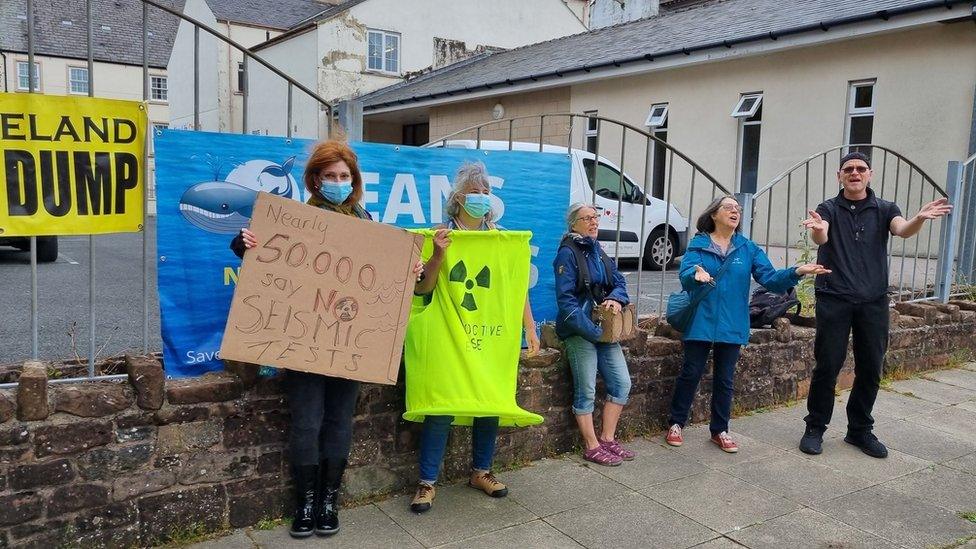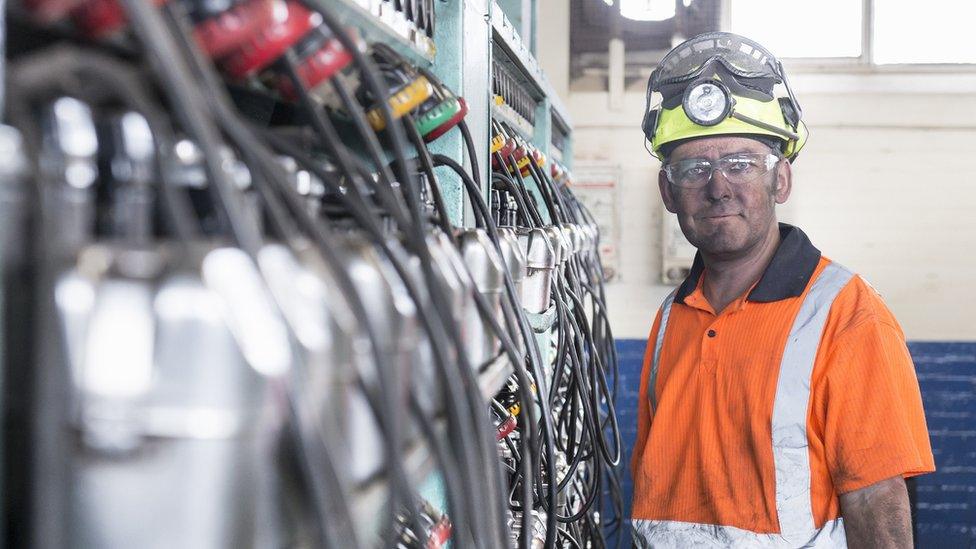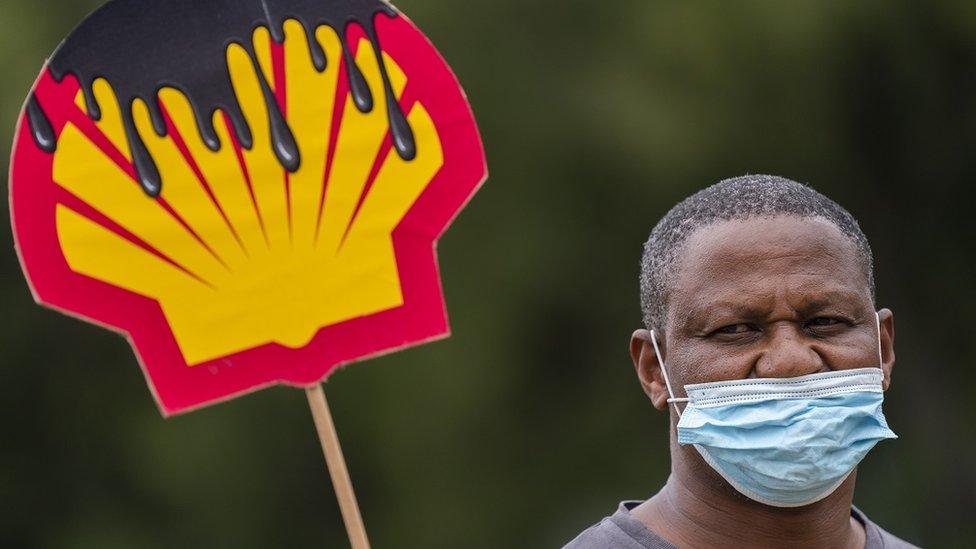Nuclear waste protesters want vote over seismic testing in Irish Sea
- Published

A small group of protesters outside Copeland Borough Council
Anti-nuclear waste campaigners have protested over plans for seismic testing in the Irish Sea.
The research, which uses sound waves, is being carried out to determine if the seabed contains suitable geology for underground nuclear waste storage.
Mid and South Copeland are among areas in the UK mooted for what is known as a Geological Disposal Facility (GDF).
Nearly 50,000 people have signed a petition calling for a full council debate and vote on the plans.
'Commercial venture'
Marianne Birkby, from Lakes Against Nuclear Waste Dump, said seismic testing was "very invasive" and "damaging", and claimed it harmed marine wildlife.
She added that the group's petition was to ask that the full council is given a vote on an entry into a community partnership and argued that councillors were never given a full debate on seismic testing.
One protester, who spoke Tuesday's Copeland Borough Council meeting, said they were representing the 50,000 signatories, the Local Democracy Reporting Service said.
"The petition is to suggest that the impact on wildlife of these proposals, is substantial and that countries around the world are lobbying against seismic testing for it to be banned," they said.
"This is not scientific research as the partnership claims, it's in fact a commercial venture to deliver the GDF for very hot nuclear waste."
'Future generations'
Councillor David Moore, a member of the Mid Copeland GDF Community Partnership, said of the petition: "There were some numbers mentioned there of 50,000 people, the petition that was handed in to this council on 9 June, there were 1,342 signatures on that.
"On that petition there were 38 signatures from Copeland, 50 from the wider Cumbria and the rest made-up of signatures from the UK and worldwide."
Mr Moore said the work was undertaken by a leading marine geological survey company on behalf of Nuclear Waste Services (NWS) and that the necessary approvals had been sought with advice from Natural England.
Chris Eldred, NWS senior project manager for geosphere characterisation, said a GDF "will protect future generations from the risks of keeping hazardous radioactive waste in surface stores for thousands of years."
"To help us with this vital work, we will undertake surveys to provide a better understanding of the deep geology beyond the coast, while doing everything we can to minimise any environmental impact," he added.

Follow BBC North East & Cumbria on Twitter, external, Facebook, external and Instagram, external. Send your story ideas to northeastandcumbria@bbc.co.uk, external.
Related topics
- Published8 December 2022

- Published28 December 2021
